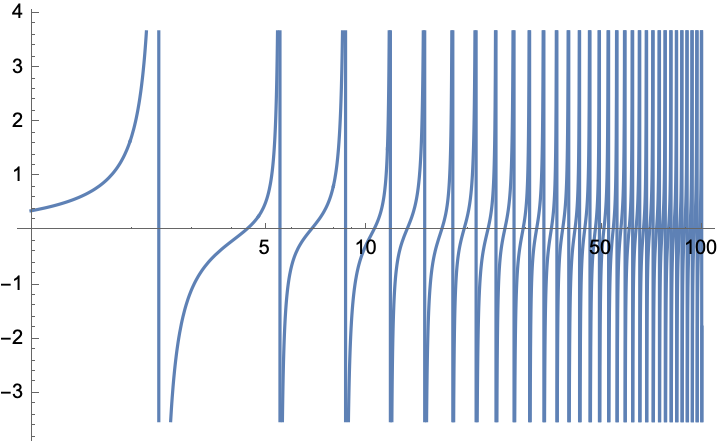Under some reasonable assumptions integrals with large exponents can often be computed via saddle point approximations, e.g. $$\int e^{-\lambda f(x)}\approx e^{-\lambda f(x_0)},\qquad \lambda\to\infty$$ where I assume that $x_0$ is a unique minimum of the function $f(x)$. These types of computations are omnipresent in physics, for example. I am interested if there are examples in the reverse direction, when finding the minimum of $f(x)$ directly is challenging, but computing something like $$\frac{\int e^{-\lambda f(x)}x}{\int e^{-\lambda f(x)}}\approx x_0,\qquad \lambda\to\infty$$ is tractable and allows to locate the minimum. Perhaps generalization to many variables or functional integrals would be more appropriate.
I hope the question is meaningful despite the lack of precision and rigor. Any comments are welcome!


With[{x = 10}, NIntegrate[Exp[ x Sin[\[Pi] t]] t, {t, -1, 1}]/ NIntegrate[Exp[ x Sin[\[Pi] t]], {t, -1, 1}]]gives me0.499989. $\endgroup$